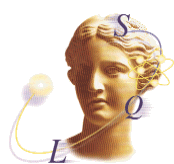
Delphi 4 in Depth
This was a UK BUG MasterClass
held on 1st September, 1998 in Hammersmith, England.
Click here for the files that
accompany this seminar.
Delphi 4 - have you upgraded to it, are planning to do so or
wondering if you should? Then this intensive, one-day training
course is for you.
It runs from 10 am until 6pm, with the following agenda.
10:00 - The IDE
In this first session we examine closely the Delphi development
environment, looking in detail at the enhancements made since
version 3. These include:
Drag and dock nature
- New multi-target project manager
- New things to make and things to do (resource DLLs, NT
services, COM objects, CORBA objects, MTS objects, Web DB
Wizard)
- Helpful Form designer
- The revamped editor and its new friends (Module Explorer,
Tooltip Symbol Insight, Class completion, Code Explorer,
Intellimouse support, navigation history)
11:00 - Debugging facilities
Delphi has always had a debugger worthy of a 3GL. Now we have
lots more helpful stuff including:
- Remote debugging
- Multi-process debugging
- Local variable viewer
- Data inspectors
- Data change breakpoints
- A documented CPU window
- An event log
- An enhanced module view
- A whole multi-page dialog's worth of IDE options to
customise it
12:00 - Language enhancements
Here we look at what takes this release of the Inprise Object
Pascal compiler up to version 12:
- LongWord and Int64 fundamental data types
- Dynamic arrays
- Method overloading
- reintroduce to avoid "hides virtual method of base type"
warning.
- Default parameters
- TObject.AfterConstruction and TObject.BeforeDesctruction.
- Delegated interface implementation
- Package changes.
13:00 - Lunch
14:00 - The VCL
Next under the microscope is the Visual Component Library,
which has been improved with a lot of the stuff we see in the
IDE:
- Intellimouse support
- Drag and dock ability
- MS Office-like UI components
- Action lists
- Year 2000 support in the run-time library
- More internationalisation/localisation support
- Much refined geometry management control.
- The DBGrid connected to the latest version of Oracle 8.
- Windows 98: multiple monitor support.
15:00 - COM/CORBA Support
For Client/Server Suite owners, the already good COM support
has been extended.
COM objects can now work within MTS (Microsoft's Transaction
Server).
Automation objects have optional event support.
You can build CORBA objects (objects that conform to the OMG's
Common Object Request Broker Architecture spec) and talk to
other CORBA objects which may not even reside on Wintel
platforms.
We look at how all this stuff operates in as much detail as time
allows.
16:00 - The BDE
TTable objects have more component editors.
(Now up to version 5, and allegedly smaller and faster) supports
Access 97 (Delphi 3's BDE did not).
Also there is direct support for the extensions to be found in
Oracle 8 including abstract data types, arrays and nested tables.
Finally, the Visual Query Builder has been laid to rest and
replaced with rather better SQL Builder.
17:00 - MIDAS
As far as MIDAS goes, the prime improvement that we will be able
to see is that you can write your middle-tier server application
using whichever distributed architecture you like: COM, MTS,
CORBA, sockets.
New components allow this to be done with relative ease. Also,
the MIDAS technology itself has been improved to allow more
control and flexibility in communication between client and
server applications.
